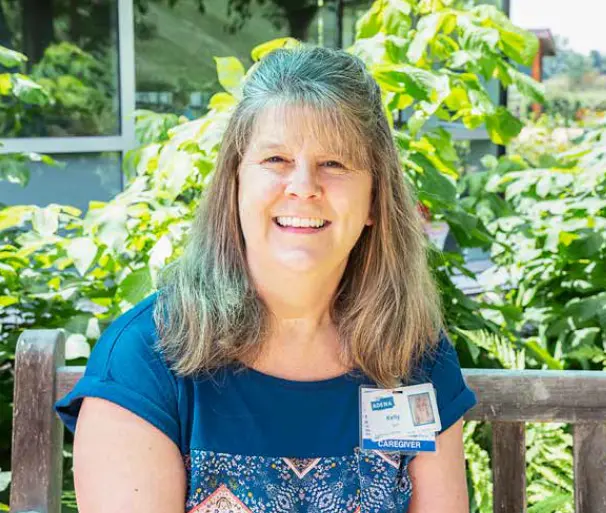Body Language: Cancer survivor cautions others about dismissing symptoms

 Listening with the intent to understand is a valuable life skill. Listening to your body is a developed skill on which your life may depend.
Listening with the intent to understand is a valuable life skill. Listening to your body is a developed skill on which your life may depend.
When it comes to cancer, the body tends to initially whisper when something is wrong. That soft voice of alarm comes in many forms – a strange and persistent ache, excessive fatigue, bio-screening numbers that are outside of a normal range, or any change that is different from your body’s normal functionality.
Kelly Bee has honed her ability to heed her body’s warnings. It’s a skill that, for her, came with a steep price.
Delaying. Stalling. Procrastinating.
A person with an average risk for colorectal cancer should start undergoing colonoscopy screenings at age 50. When Bee turned 50, she decided to put it off a year. During that time, she noticed her bowel habits had changed.
Bee was 51 in July 2016 when she had bloodwork done. Her hemoglobin count was low, but not to a level that caused alarm. Normal levels range from 11 to 14, and Bee's was 10.4.
Her physician recommended that in addition to a colonoscopy, she also have an upper endoscopy, known as an EGD, to detect and identify any digestive issues. An endoscopy involves inserting a thin scope down the patient’s throat, and for reasons Bee has difficulty explaining, that made her nervous.
“I got a little scared and ended up talking myself out of both procedures,” says Bee, a manager
at the Adena Regional Medical Center Gift Shop.
More Signs
Six months later, in January 2017, the director of Bee’s department was diagnosed with cancer. The director was a relatively young woman and the diagnosis was unexpected. She died five months later.
“We were emotionally stunned. I worked with her for 20 years. It was devastating,” recalls Bee.
Her co-worker’s death was a wakeup call of sorts for Bee. She had begun to notice she grew easily tired and winded, and would feel dizzy upon standing. She decided to get her bloodwork done again and learned her count had dropped to seven.
With her fatigue, low hemoglobin count and digestive symptoms, Bee thought she had blood issues and believed that taking iron tablets would end her troubles. Meanwhile, her colonoscopy and EGD were scheduled for August. Bee was again considering canceling her appointments. She had broken her ankle falling on her basement steps and was unable to bear weight on it for four weeks.
“I thought, ‘How can I prep for a colonoscopy while not bearing weight?’” Bee asks. “The physician who did my bloodwork was an oncologist at the cancer center. And cancer still never crossed my mind!”
Her sister, Kim Pullins, a nurse practitioner and former Adena employee, recognized there might be a more serious health problem. She pointed out to Bee that weak bones, along with her other symptoms, indicated she could possibly have cancer.
Bee maintained her denial.
Time to Listen
With Pullins’ insistence, Bee finally underwent a colonoscopy and an EGD in late September 2017. Bee acknowledges the EGD was no big deal and that she had no reason to be fearful of it.
The colonoscopy revealed a malignant polyp and her medical team went into immediate action. Bee was wheeled from the colonoscopy to a CT scan, which showed two malignant lymph nodes. Fortunately for her, the malignancies were contained to her bowel.
Bee was, however, terrified. In October, her cancer team removed the entire right side of her colon and 18 lymph nodes. As a precautionary measure she went through six chemotherapy treatments over a three-month period.
Today, Bee is cancer-free, but she wishes she had heeded the early indicators.
Recognizing that her treatment may have been much less invasive if she had an initial colonoscopy, she urges everyone to pay attention to their bodies and not rationalize the warning signs.
“I just attributed my symptoms to bad eating and coffee,” Bee says. “You just take your body for granted. Don’t do that. Your body talks. Listen to it.”